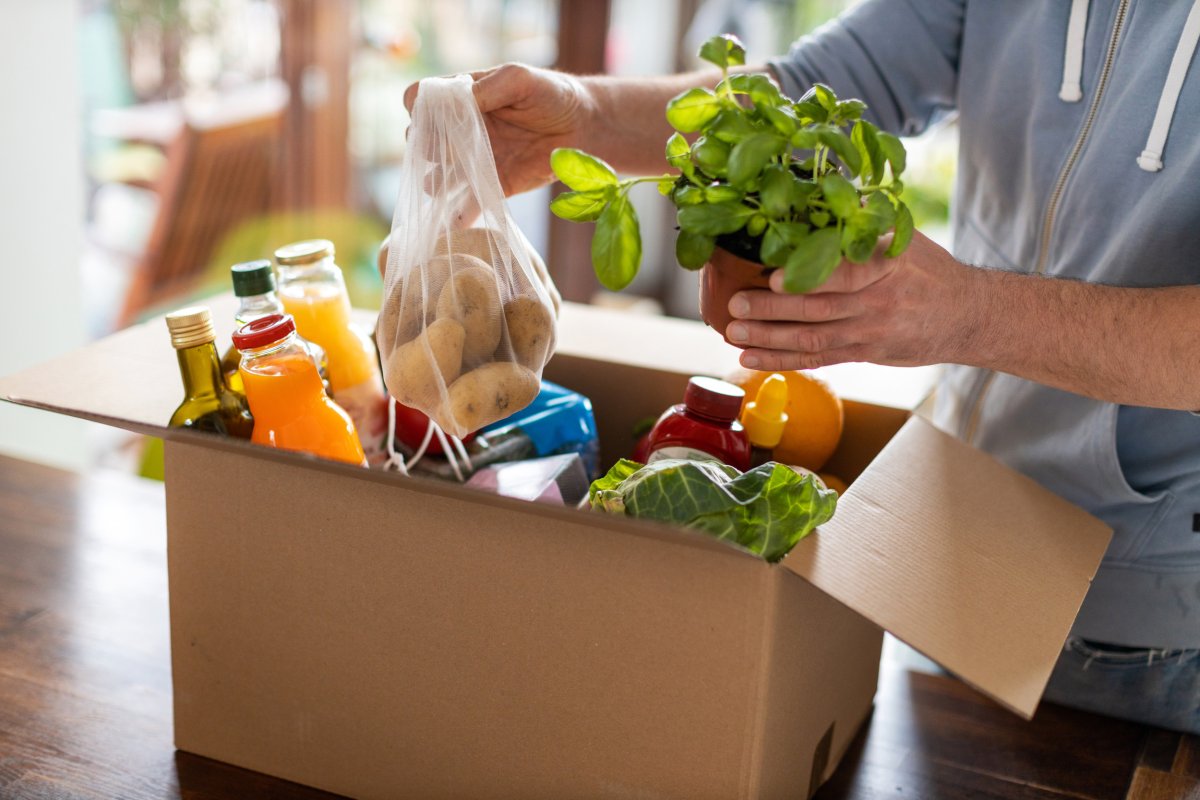A new bill that could be signed into law this year could change eligibility for Americans with drug convictions when it comes to the Supplemental Nutrition Assistance Program (SNAP).
The Re-Entry Support Through Opportunities for Resources and Essentials Act (RESTORE), which was introduced in 2023, seeks to allow individuals with drug offenses eligible to receive benefits under SNAP. If enacted, the bill would remove "any state law, policy, or regulation that imposes conditions on [SNAP] eligibility" for those with an "offense related to a controlled substance."
It would also allow incarcerated felons to apply for SNAP benefits prior to their release. According to the Prison Policy Initiative (PPI) in March, 360,000 people in the United States are incarcerated for drug offenses.
Commonly known as food stamps, SNAP benefits are paid to low- and no-income individuals and families who would otherwise struggle to afford basic groceries and necessities.
In August 1996, laws enacted by then-President Bill Clinton mean those with federal or state felony drug convictions are permanently banned from receiving SNAP and Temporary Assistance for Needy Families (TANF) benefits. However, it does contain a provision that allows states to opt out or modify the ban.
According to The Network for Public Health Law, only South Carolina has a total ban in place, with 22 states and Washington, D.C., having completely opted out. The other 27 states have modified the ban so that qualifying people with a drug felony convictions are still eligible to receive SNAP benefits.
The RESTORE Act has been added to the Farm Bill, which expires every five years with new legislation brought in to replace it. The next Farm Bill, also known as the Rural Prosperity and Food Security Act, is "on track to being signed into law by the end of the year," according to a press release from the U.S. Senate Committee on Agriculture, Nutrition and Forestry that was published on Wednesday.
The bill was introduced by Tennessee Democratic Representative Steve Cohen in May 2023, and was co-sponsored by Florida Republican Representative John Rutherford, Maryland Democratic Representative David Trone, Nebraska Republican Representative Don Bacon, and Georgia Democratic Representative Sanford Bishop.

"Thousands of people released from state and federal prisons each year re-enter society and find significant challenges, including lifetime bans on receiving food assistance," Cohen said last year. "The RESTORE would allow them to apply for the program before their release so that they can meet their basic needs on day one, reducing the likelihood of recidivism and increasing the quality of life for people hoping to reintegrate into their communities."
Newsweek has contacted Cohen's team via email outside of normal working hours for additional comment.
Analysis of state policies conducted by the Network for Public Health Law identified several common adjustments to the SNAP drug conviction ban across the country. The survey highlighted three common requirements to accessing the benefits: drug treatment, drug testing, and adherence to parole conditions. Fifteen states mandate drug treatment, while only nine necessitate drug testing, although the latter may be a component of successful drug treatment completion. Meanwhile, 16 states mandate compliance with parole conditions for individuals convicted of drug offenses in order to receive SNAP.
Less frequently observed were three further points. Five states impose permanent disqualification from SNAP after multiple separate convictions. Certain states differentiate between possession and distribution crimes; four states withhold benefits from individuals convicted of distribution felonies but not from those deemed "possession felons" who are otherwise eligible.
It also found that four states have a specific period of ineligibility tied to either the conviction date or release from incarceration.
Uncommon Knowledge
Newsweek is committed to challenging conventional wisdom and finding connections in the search for common ground.
Newsweek is committed to challenging conventional wisdom and finding connections in the search for common ground.
fairness meter
To Rate This Article
About the writer
Aliss Higham is a Newsweek reporter based in Glasgow, Scotland. Her focus is reporting on issues across the U.S., including ... Read more





